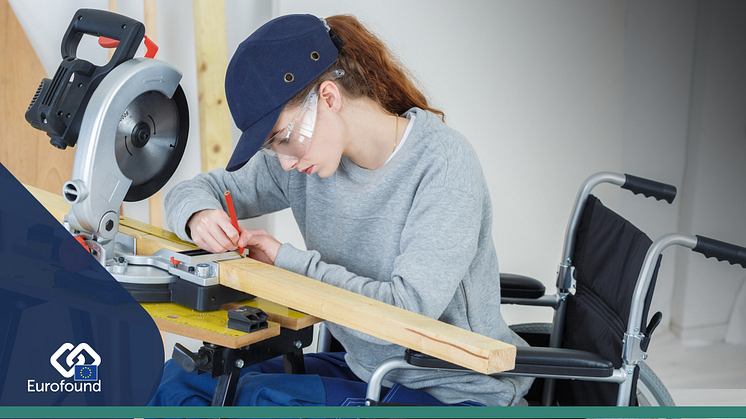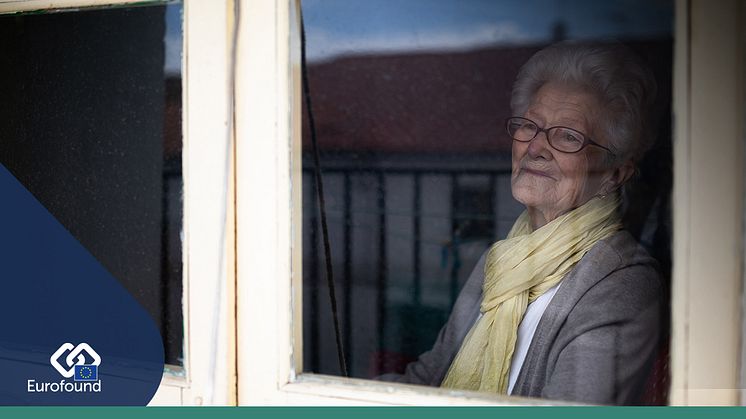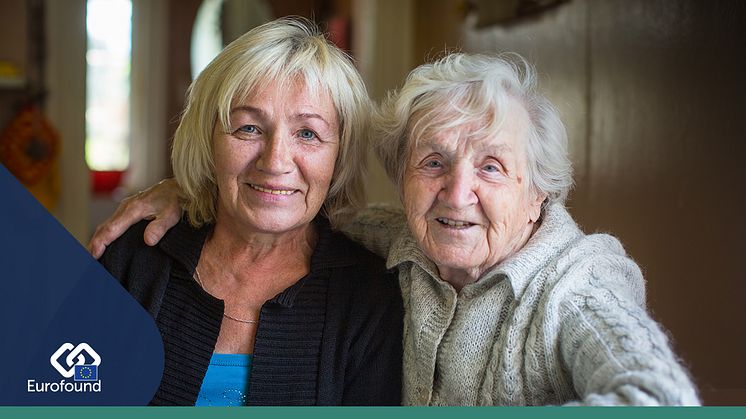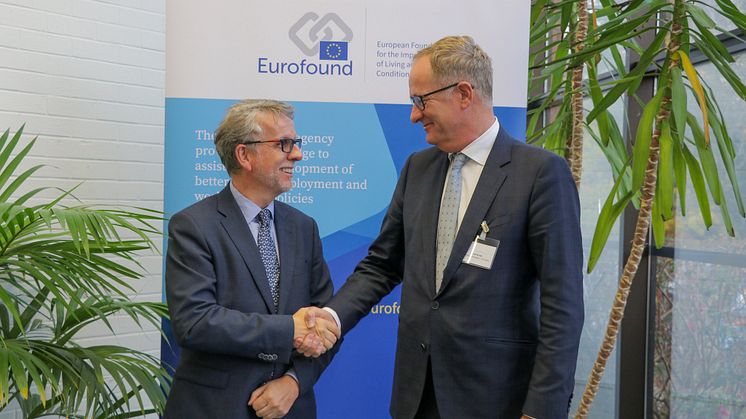Good news for gender equality as we exit the COVID-19 crisis?
The pandemic has had differential impacts on women. Raised consciousness about them must be applied to advance gender equality in recovery measures.

The pandemic has had differential impacts on women. Raised consciousness about them must be applied to advance gender equality in recovery measures.

The COVID-19 pandemic is having negative and far-reaching consequences on labour market participation and social inclusion, which may further disadvantage people with disabilities.

Eurofound’s new policy brief on ‘Education, healthcare and housing - How access changed for children and families in 2020’ focuses on the aspects of accessibility for children and families for which Eurofound has data and highlights differences in accessibility before and during the COVID-19 pandemic.

This year’s theme to mark International Women’s Day on 8 March is Choose to Challenge (or #ChooseToChallenge, if you prefer). The idea is to highlight that ‘from challenge comes change’ and that ‘we can all choose to challenge and call out gender bias and inequality’.

Europe saw two decades of improvement in working conditions in a multitude of areas prior to COVID-19. However, progress in a number of areas, such as gender pay gaps, gender segregation in labour markets, psychosocial risks, and work intensity, were fragile and advancements over 20 years now risk being diluted in less than 20 months.

Eurofound’s Living, working and COVID-19 online survey aims to capture the far-reaching implications of the pandemic for the way people live and work across Europe. Two rounds of the online survey have been carried out to date. The third round is launched today, 15 February, and will be open until 29 March 2021.

Nominal statutory minimum wages in most Member States and the UK continued to rise in 2021. With inflation being low, this has resulted in real increases for those minimum wage workers who have managed to retain their jobs and the same working hours.

The employment fallout of COVID-19 has been a story of two types of service work. Office-based knowledge workers have largely kept their jobs and incomes while working from home; whereas client-facing service workers have borne the brunt of the lockdowns and the steep declines in demand for in-person services in restaurants, hotels, leisure and the arts.

Healthcare providers have been overwhelmed by the demand for COVID-19-related care. Medical appointments and treatments for other conditions have often been delayed, potentially leading to escalating health problems and greater future care needs among those who have missed out. If the pandemic leads to an economic crash, this rise in unmet medical needs could spiral.

In the most successful businesses, managers were found to facilitate employees to work independently rather than to focus on controlling whether they carried out their tasks. Closely monitoring employee behaviour might indeed ensure that workers do their job but is unlikely to motivate them to go beyond their job description.

Stefan Gran has been elected Chair of Eurofound’s Management Board during the third meeting of the Board on 6 November 2020. He takes over from outgoing chair Aviana Bulgarelli, Ministry of Labour and Social Policies (Ministero del Lavoro, della Salute), Italy.

Eurofound’s new flagship report ‘Challenges and prospects in the EU: Industrial relations Developments 2015-2019’ provides an overview of developments in industrial relations and social dialogue in recent years, prior to the COVID-19 outbreak.

An ageing Europe and rising public expenditure on long-term care have signalled for some time that the fundamentals of care provision need to be addressed. However, the shocking death toll in care homes during the COVID-19 pandemic and the fact that many long-term care services were ill-equipped to protect their vulnerable users have lately focused the public mind on the issue.

At the end of his term as Executive Director on 30 November 2020, we engaged in a socially distant interview with Juan Menéndez-Valdés to review the last decade, his thoughts on Europe and his hopes for Eurofound.

The gender pay gap in gross hourly earnings in the EU was 14.8% in 2018. To help combat discriminatory pay practices by employers, the European Commission recommended in 2014 the introduction of pay transparency measures in all Member States. But more than half still have not implemented any such measures. Where do Member States currently stand on the agenda?

According to the recently published European Company Survey 2019 by EU agencies Eurofound and Cedefop, almost all managers (96%) agree training is important for employees to do their current job and most workplaces in the EU offer at least some training, yet only a small number – 9% – offer comprehensive training and learning opportunities to most of their employees.

The #EurofoundCompanySurvey ECS 2019 demonstrates that companies can design their workplace practices to help generate outcomes that benefit both workers and employers. Eurofound is organising a live #AskTheExpert webinar session on 29 October to delve into the European Company Survey 2019 findings relating to skills.

New data from Eurofound’s European Company Survey (ECS) show that two-thirds of workers (private sector, with more than 10 employees, EU27) are estimated to have their wages set via a collective wage agreement. Bargaining coverage is substantially higher in countries where there are sectoral agreements and where these are frequently extended to non-covered companies or workers.

Young people are overrepresented in the sectors hit hardest by COVID-19 restrictions, such as retail, travel and hospitality. According to Eurofound’s ‘Living, working and COVID-19’ survey of people in Europe, 11% of respondents aged 18–29 lost their jobs during the pandemic, compared to 8% of workers over 30.

One in five companies in the EU-27 succeed in providing the optimal workplace environment, according to the new European Company Survey, This report is based on the fourth edition of the European Company Survey (ECS), which was carried out jointly by Eurofound and Cedefop in 2019.
